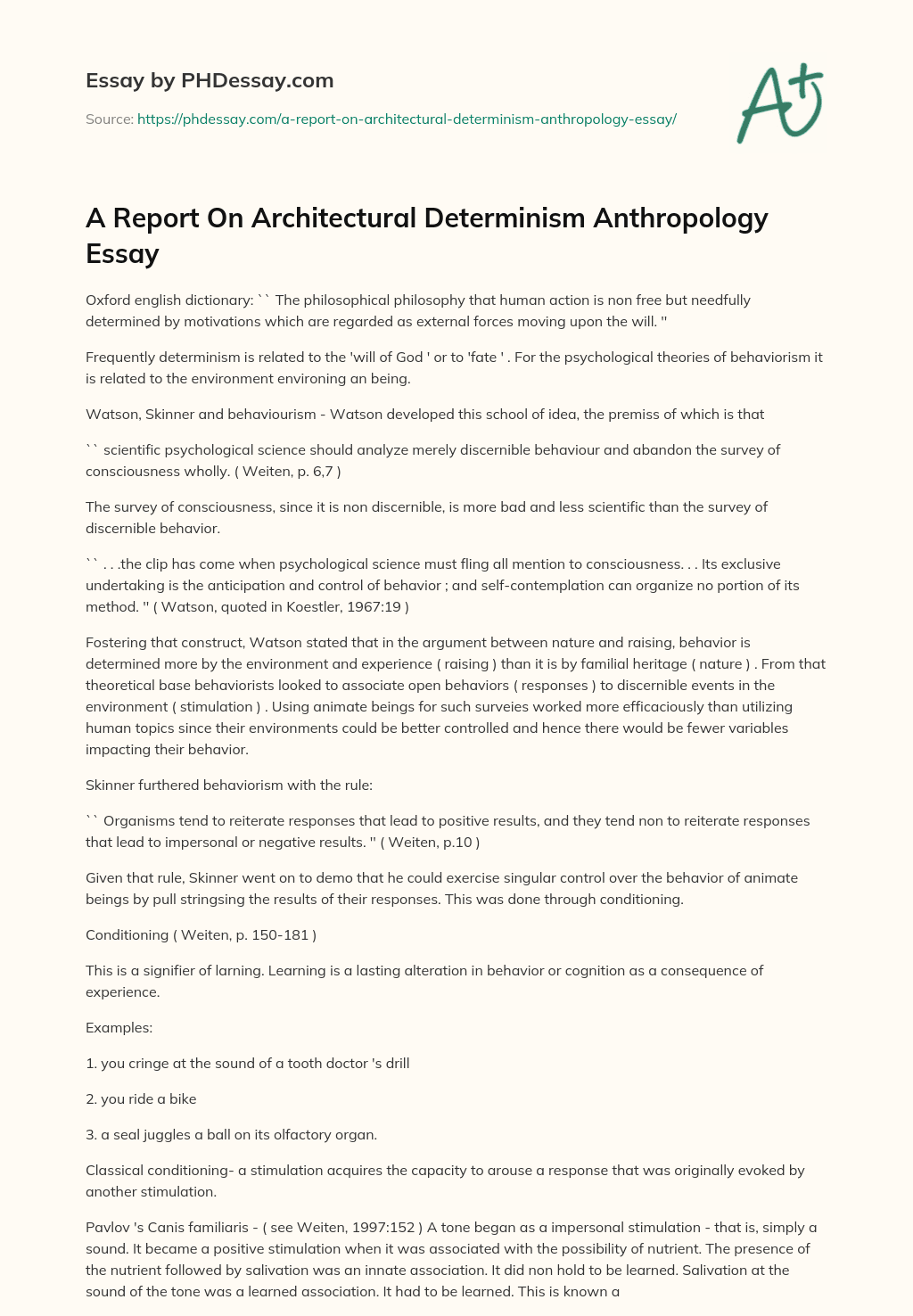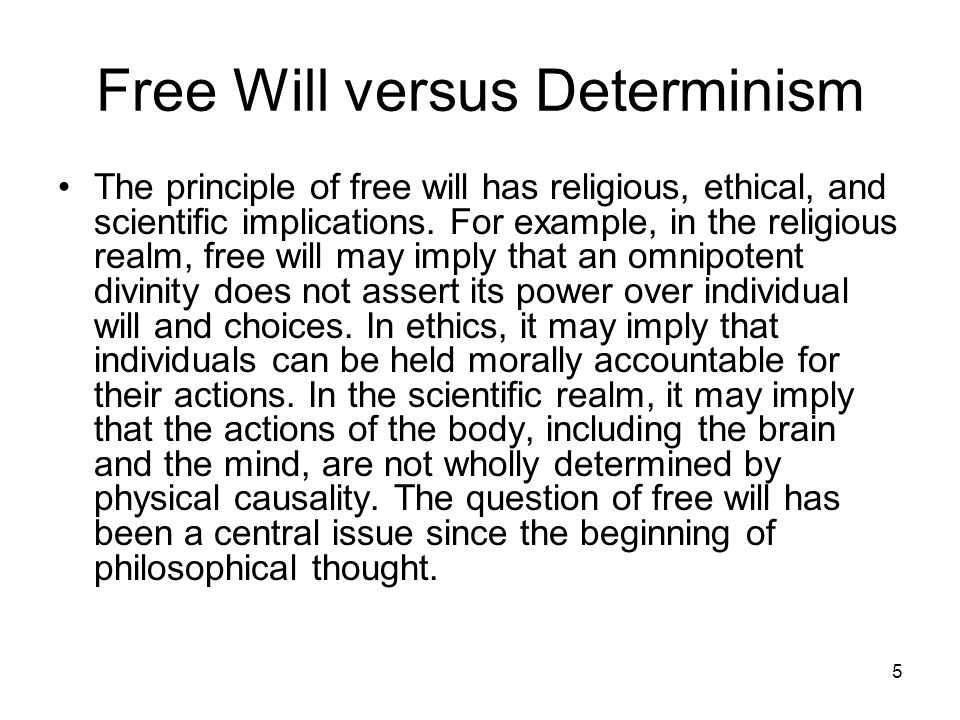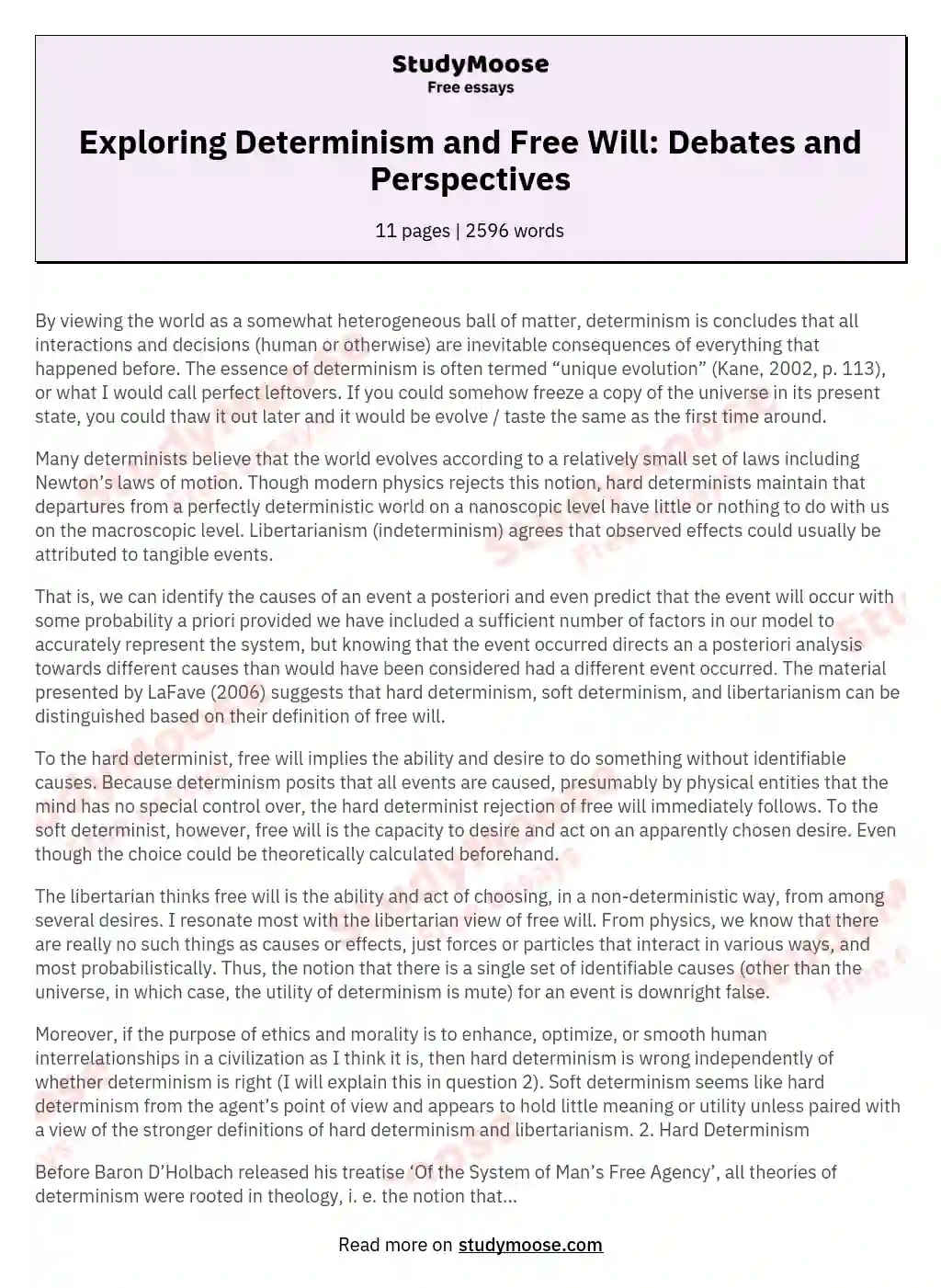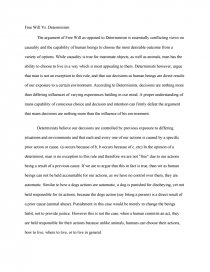Determinism is the philosophical idea that every event, including human actions, is ultimately caused by preceding events or natural laws. In other words, according to determinism, the future is fixed and predetermined by past events and natural laws. This belief stands in contrast to indeterminism, the idea that some events, such as human actions, are not fully determined by past events and natural laws.
There are several different forms of determinism, including metaphysical determinism, which holds that all events are determined by the nature of the universe, and psychological determinism, which holds that all human actions are determined by psychological factors such as desires, beliefs, and emotions. There is also environmental determinism, which holds that the environment in which a person is raised plays a significant role in determining their actions and behaviors.
One of the main arguments for determinism is the principle of causality, which states that every event has a cause. This principle is widely accepted in science and is used to explain the behavior of physical systems. For example, the laws of motion explain the movement of objects, and the laws of thermodynamics explain the transfer of heat and energy. If the behavior of physical systems can be determined by natural laws, it seems reasonable to conclude that the behavior of living organisms, including humans, is also determined by natural laws.
However, determinism is not without its criticisms. Some argue that it is incompatible with free will, the idea that individuals have the ability to make choices that are not determined by past events or natural laws. If everything is predetermined, it seems that individuals do not have the ability to make choices that are truly free. This has led some philosophers to argue for compatibilism, the idea that free will and determinism can coexist. According to compatibilism, free will does not require the ability to act freely from all constraints, but rather the ability to act in accordance with one's own desires and goals.
Another criticism of determinism is that it seems to diminish the role of individual responsibility. If our actions are determined by past events and natural laws, it seems that we are not truly responsible for our actions. However, determinists often argue that individual responsibility can still be maintained within a deterministic framework. For example, even if our actions are determined, we can still be held responsible for them because we could have acted differently if we had made different choices.
In conclusion, determinism is the philosophical idea that all events, including human actions, are ultimately determined by past events and natural laws. While there are arguments in favor of determinism, such as the principle of causality, it is also criticized for its implications for free will and individual responsibility. Despite these criticisms, determinism remains a influential and controversial idea in philosophy.






